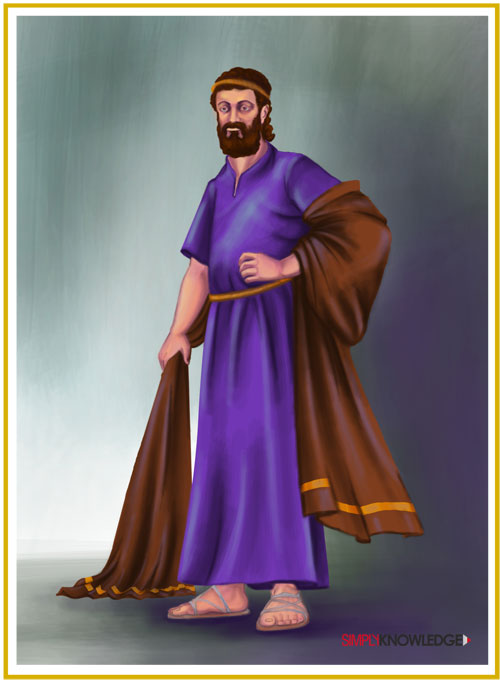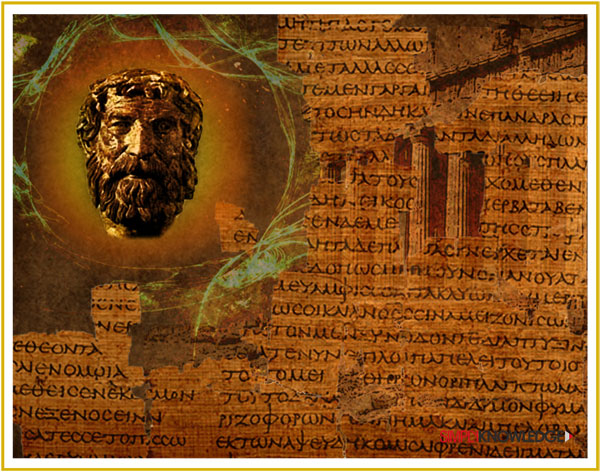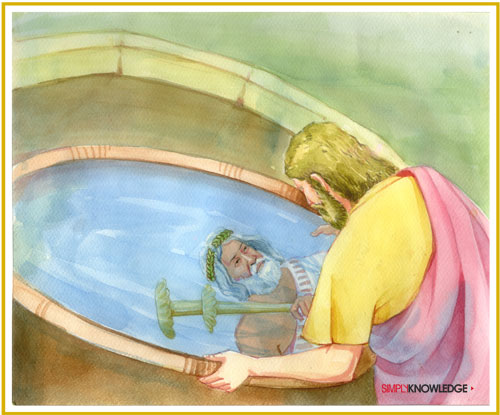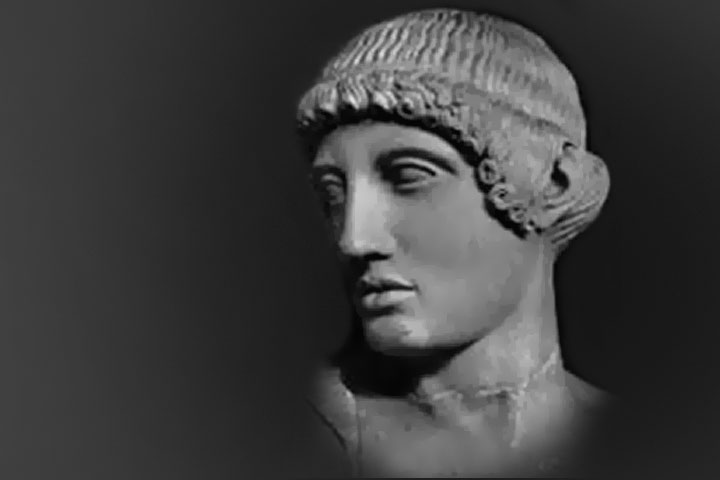
“The nature of God is a circle of which the centre is everywhere and the circumference is nowhere,” said Empedocles of Acragas, implying the common spiritual concept about an omnipresent, omnipotent divine being. The quote has universal acceptance since it is reflected in every spiritual text of all religions.
Yet, these words do not behove Empedocles, who by all descriptions, suffered from self deception or delusions that he was God himself, who was banished from heaven for his sins. In sheer paradox, his rant is the first recorded mention of “sin” by any ancient thinker. Empedocles also holds the dubious distinction of being the first psychologist to try prove the functioning of the brain, regardless of whatever his own mental status.

Ancient Greek historian and chronicler, Diogenes Laertius, in his book “Lives of the Eminent Philosophers,” and records by his contemporary and later counterparts indicate, Empedocles was born into a wealthy family in 492BC in the city of Acagras in Sicily in modern day Italy, which during that era, was a Greek colony.
Historians dispute Empedocles’ lineage: Some claim he was born to a wealthy Sicilian trader named Meton. Others state, Meton was a wealthy aristocrat in Sicily, whose father, also named Empedocles, had won accolades at the Olympic Games in 486BC. Regardless, all chronicles agree in principle that Empedocles was born with the proverbial silver spoon.

Historians remain divided over various details about Empedocles’ life, especially his education and initiation into the schools of thought. While his thoughts corresponded with those of Parmenides, there is little evidence to indicate he actually studied under the great thinker. Some of his works are also attributed to teachings of Pythagoras, Anaxagoras, Xenophanes and Animaxander, though the source of his knowledge about their teachings continues to be debated till date. Regardless, Empedocles was highly erudite and could engross anybody with his tacit yet intellectual banter. Though Empedocles was affluent, he was also affable, equally comfortable in the company of aristocrats or commoners.
Empedocles is credited for having travelled extensively to distant lands. Records about his stay in Athens were written by some peers. He also travelled around the Peloponnese where he was highly revered by nobles and rulers.
There are no records about Empedocles being married or having any progeny.


That Empedocles was wealthy was evident from his opulent lifestyle and tastes: He had a team of butlers at his beck and call, donated huge amounts of cash and jewellery as dowries to enable girls from poor families of Acragas to get married, indulged in effusive charity, was fond of personal entertainers upon whom he spent lavishly, hosted grand soirees and dressed in the most expensive garments- a purple robe with a golden girdle and silver-and-bronze sandals, complete with fine, exquisite fragrances.
Empedocles had a regal countenance and walked with the gait of a high ranking aristocrat, attracting respectful salutations from strangers, wherever he passed. Critiques and followers credit Empedocles for unparalleled astuteness and deep sense of propriety, in contrast with his peers.


Empedocles, owning to his wealthy lineage, was a political chauvinist who despised oligarchy, strove to uphold democracy and equality of rights among citizens. He held law of the land supreme.
Empedocles launched his political career by prosecuting two senior statesmen who stood accused of improper behaviour towards visiting foreign diplomats. Empedocles viewed such behaviour as symbolising incipient supremacist tendencies and initiated legal proceedings against the errant duo. Empedocles also suppressed several covert movements, including the much dreaded ‘Thousands’ cult, which aimed at disrupting democratic rule in Acragas. Other records claim, Empedocles managed to overthrow a despot and restore democracy in his native land through only rhetoric and persuasion.
He was offered a very senior position in the Acragas government but declined it since he wanted to master other subjects, especially psychology, evolution, nature and spirituality.

Unlike other thinkers of the Greco-Roman regions, Empedocles holds the unique distinction of being an epitome of the proverbial ‘Jack of all trades’. He was renowned as a politician, a philanthropist, poet, thinker, a physician or shaman bestowed with unworldly healing powers, scientist and sometimes, a seer who could make preposterous prophecies.
Empedocles’ political skills and philanthropy are proven beyond doubt. His poetry was well appreciated and oft quoted by contemporaries and later day thinkers. However, his claims of being a physician gifted with divine healing powers and a shaman who could predict disasters are incredulous. Historians state, Empedocles offered free healing to thousands of his followers. He promised prophetic healing and panaceas for every disease, including miraculous cures against ageing.
Modern day researchers delving into Empedocles’ life are however convinced that he was not a mere charlatan. Rather, this misconception about Empedocles evolved since he did not clearly distinguish between simple medical cures and intricate spiritual ailments based on psychological thought.
He spent all his life teaching, writing poems and authoring two major books called ‘On Nature’ and ‘Purifications’.
In his book ‘About Nature’’, Empedocles tries to explain his view of the evolution of life on Earth. He claims that all living beings have two faces instead of one- possibly meaning the two different-love and hatred- characteristics of humans.
In the other book, ‘Purifications’, Empedocles describes various types of sin and how to stay away from human desires that may lead to sinful act and hence, punishment from a divine power.
The manuscript has largely perished over centuries. However, a few fragments did survive. Research into these are ongoing. The manuscript was written in the Hexagraphic text, common during his era.


Empedocles generally led a non-eventful life, serving his native land, Acragas. But his claim to divinity caused some thinkers and commoners to believe he was suffering from delusions. Empedocles died at the age of around 69 years, in 423BC.
There are several incredulous stories related to Empedocles’ death. The most popular one is also endorsed by Bertrand Russell, the famous British modern day historian. Drawing from legends, Bertrand Russell seems to confirm that Empedocles committed suicide by throwing himself into the mouth of the Mount Etna volcano, while it was active. Other accounts of his death range from drowning in a river after a boat he was travelling in capsized. And some state, he lived for over a hundred years before dying a natural death.


Empedocles was an avid supporter of the Pythagorean theory about transmigration of the human soul- meaning, the soul leaves a body causing death. The same soul is reborn in another place and time, which is now called rebirth.
He was the first psychologist to define the concept of ‘sin’ as an act or deed that is unpleasing to God. Empedocles claimed himself to be a daimon or demigod, who possessed divine powers. He said Gods had banished him from Heavens for his sin of consuming meat. Empedocles further claimed, his existence on Earth was part of his punishment for committing the sin and, he had powers to revive the dead and control nature.
Throughout his life, he abstained from eating meat and subsisted on a vegetarian diet.
“Alas that merciless day did not destroy me sooner, before I devised with my claws terrible deeds for the sake of food,” he told his followers when speaking about his “exile from Heaven.” Some chroniclers claim, this quote does not necessarily connote Empedocles’ claim as a demigod. They explain it saying, Empedocles was trying to convince people against what he felt were sins such as greed, jealousy, hatred, crime and other negative attributes of the human nature. He implied that it was better to die rather than live a life of impiety.

Empedocles is credited as the first Western thinker to try and explain the connection between the human brain and perception. He describes that all perception accrues through our organs of sense. The data is then stored in the brain for reference at a later date. He explained, every object-living or inanimate- exude various forms of effluences.
This effluvium enters the microscopic pores of human sensory organs. These effluences vary in size, shapes, smell, colour and energy. Only select effluences are admitted by the pores of our sensory organs, which causes the brain to react and process the received data. Perception, Empedocles claims, is achieved by the attraction of matching effluvia: Hence, we perceive light or fire through eyes, dark colours through water, sense by breath and energy such as heat, through skin.
Empedocles compared perception with paintings made by artists equipped with various colours. Artists, he expostulates, will make a painting based on their perceptions about the object, which is evident from the colours and expressions they use.
This theory of Empedocles was widely ridiculed by later thinkers including Aristotle but modern science proves the ancient Greek psychologist’s explanation of the connection between the brain, sensory organs and perception, are scientifically sound.
Next Biography











